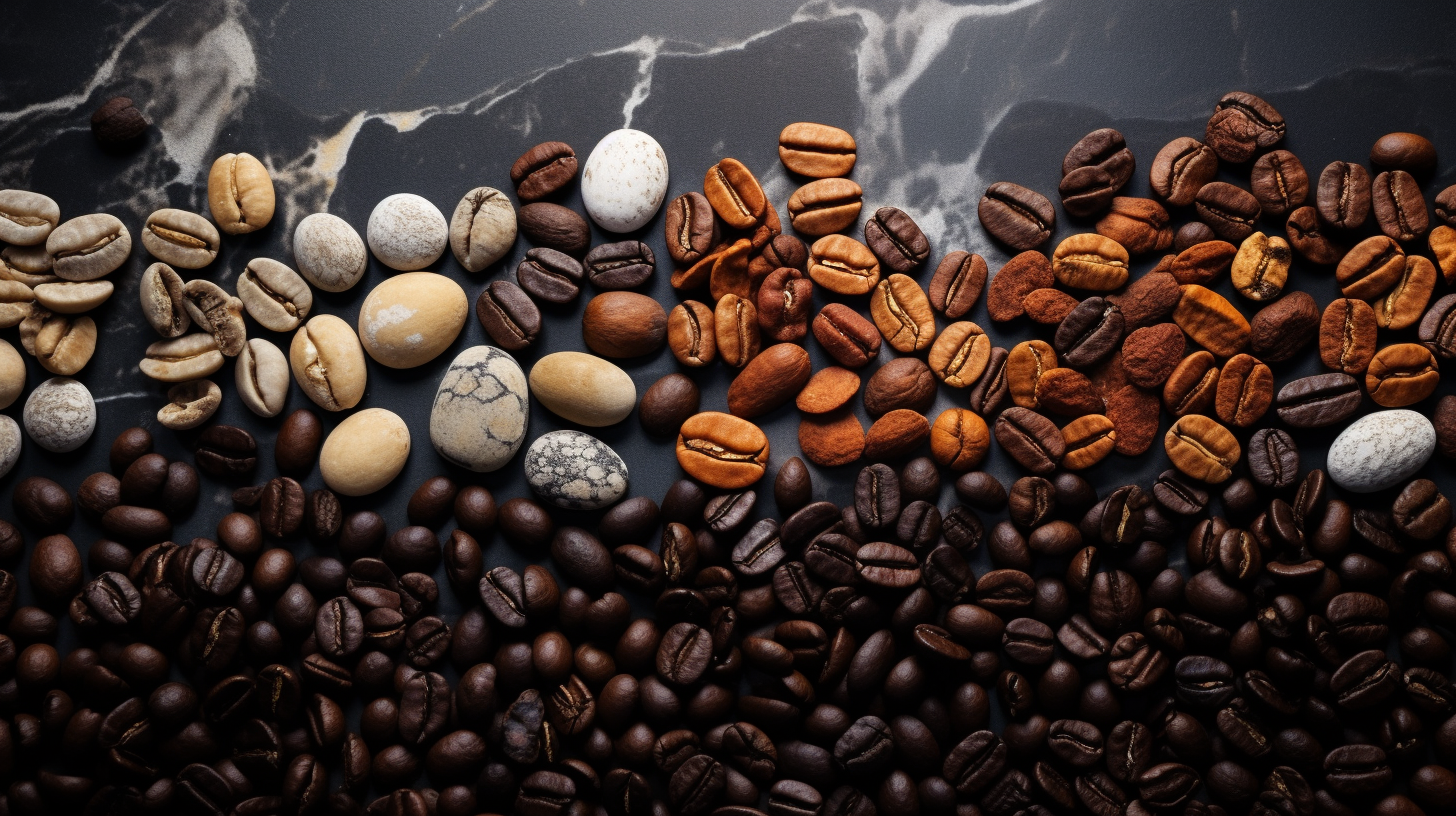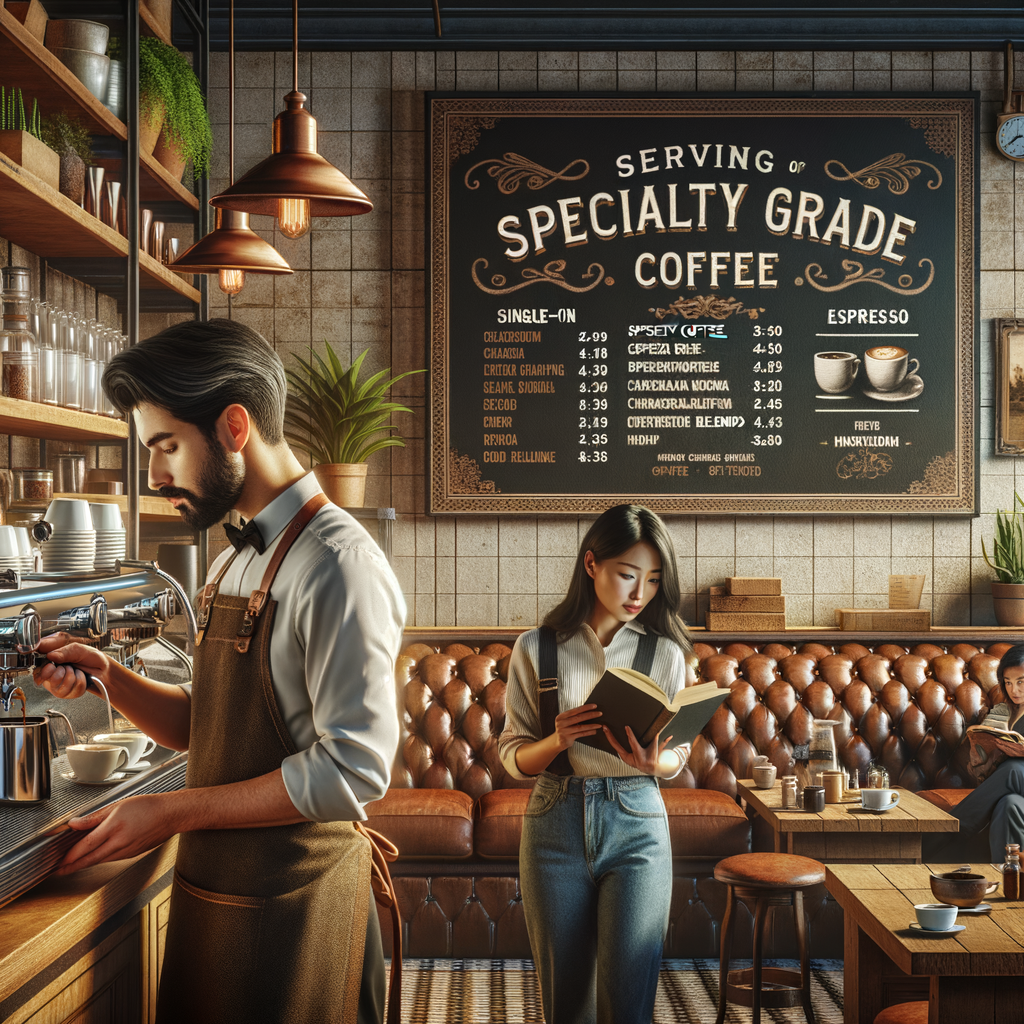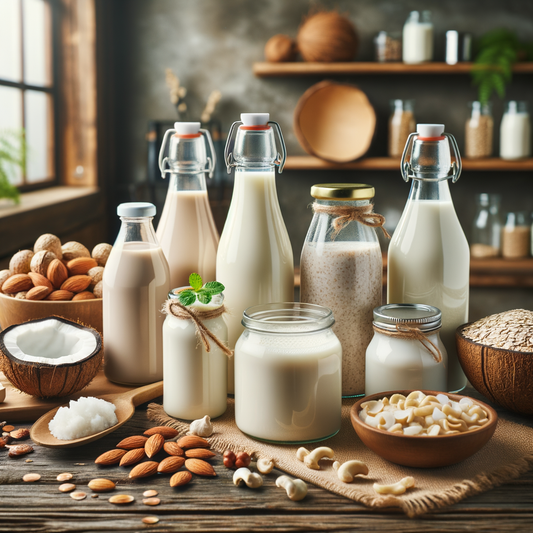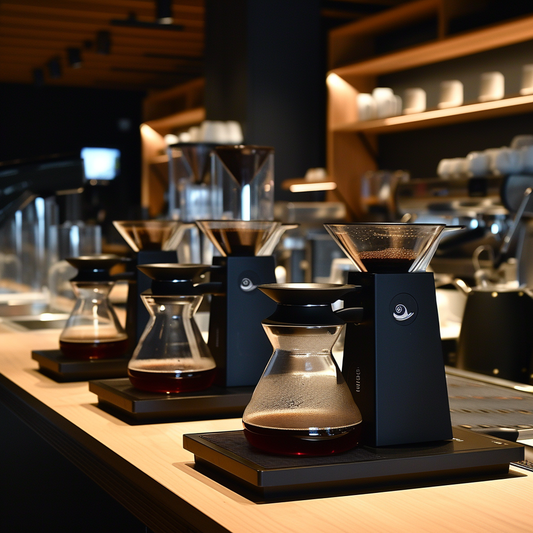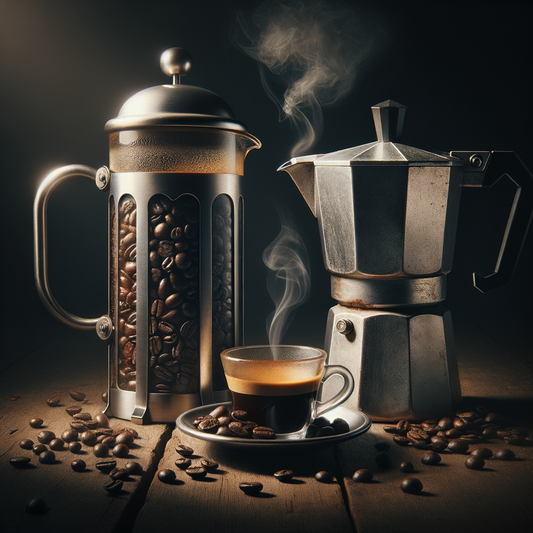Specialty coffee has exploded in popularity over the last decade. Once an obscure niche, today specialty coffee shops seem to be on every corner in big cities across America. But what exactly is specialty coffee, and why does it cost so much more than your average cup of joe? This complete guide to specialty coffee will give you all the background, help you identify quality beans, and explain how specialty coffee is made.
What Is Specialty Coffee?
Specialty coffee refers to the highest quality coffee beans produced in limited quantities. The Specialty Coffee Association of America (SCAA) defines specialty coffee as achieving a score of 80 points or higher on a 100 point quality scale. Beans must be free of defects and have distinct attributes like flavor, aroma, sweetness and mouthfeel. Additionally, specialty coffees are grown at high altitudes in ideal coffee-producing climates, and are packaged and shipped with great care to ensure freshness.
In contrast, commercial coffee brands often blend commodity-grade beans sourced from various locations. These lower quality beans frequently include defects and lack nuanced flavors and aromas. The result is a more generic, homogeneous coffee experience compared to the diversity and complexity offered by specialty coffee.
Why Does Specialty Coffee Cost More?
Producing the highest quality coffee takes more care and effort compared to mass producing commercial coffee. Reasons specialty coffee costs more include:
- Rarer coffee varieties - Many specialty coffees come from less common bean varieties that are more labor intensive to produce. Popular specialty varieties like Gesha can cost over $50/lb green.
- Higher altitudes/challenging growing conditions - The most prized coffee often comes from steep mountainsides that are difficult to access and harvest. This combined with ideal climate leads to denser beans.
- Hand-picking and processing - Specialty coffee cherries are picked individually by hand, vs machine harvesting that can bruise beans. Extra steps like dry fermenting require additional labor.
- Crop separation and inspection - Individual batches are kept separate according to quality rather than blending. Defects and underripe beans are removed by hand.
- Storage and shipping - Specialty coffee is packed in climate-controlled GrainPro bags or vacuum sealed to prevent moisture and oxygen from ruining beans, adding cost.
In short, you pay more for specialty coffee because more time, labor, care and oversight goes into producing a higher quality product. The cost reflects the rarity and level of control at each step of the process.
What Makes a Coffee "Specialty Grade"?
As mentioned earlier, the SCAA sets specific criteria a coffee must meet to be considered specialty grade. Here are the key characteristics professional coffee cuppers look for:
Aroma
The smell of the freshly ground coffee indicates flavor notes and intensity you can expect. Specialty coffee should have an enticing, complex aroma with no off odors.
Flavor
The flavor will consist of many layered notes beyond just “coffee”, like berry, chocolate, honey, fruit, etc. The flavors should transition smoothly with nothing harsh or out of balance.
Aftertaste
Lingering aftertaste is an indicator of quality. No bitterness or unpleasant astringency should remain after you swallow.
Body
The mouthfeel or weight of the coffee on the tongue. Specialty coffee should be smooth and silky with no grittiness. Having a nice body is vital.
Acidity
A bright, sparkling acidity is desirable, but it should complement the flavor not overwhelm. The acidity will be more pronounced in light roasted coffee.
Sweetness
A natural sweetness is present in good coffee, even without added sugar. The sweeter the coffee, the higher quality the beans.
Any defects like partial fermentation, mold, or phenol “potato” flavor are disqualifiers for specialty grade coffee beans. When you taste specialty coffee that hits all the right notes, the difference is obvious compared to average coffee.
Characteristics of High Quality Specialty Beans

Besides tasting notes, the physical appearance of raw coffee beans prior to roasting gives clues about their quality:
- Size - Beans are similar in size, no pebbles or fragments mixed in. Dense bean weight indicates good development.
- Color - Uniform light to medium brown color, no odd patches or unevenness. Should not be overly dried out.
- Surface - Few wrinkles, smooth surface, no damage/missing skin. Beans should not be peeling.
- Shape - Uniform oval shape, no weird formations or shriveled beans.
- Defects - No sticks, stones, hulls, mold, insect bite damage, etc.
- “Bloom” - A fresh, white bloom instantly forms when beans are immersed in water. No bubbles or foam.
Carefully inspecting raw beans lets you judge whether they were harvested and handled with care or not. Look for any flaws or inconsistencies. The visuals will match the flavor profile when cupping.
How Specialty Coffee Is Roasted
For coffee to reach its peak flavors, it must be roasted properly. Roasting is essentially cooking the green beans to induce chemical changes that enable complex flavors and aromas to emerge. The length of the roasting process determines the final characteristics as heat is applied:
Light Roast
- Stop heating just before “first crack” when the beans pop open.
- Preserves acidity and delicate flavors.
- Natural sweetness is emphasized.
- Higher caffeine content.
Medium Roast
- Heated to just after the “first crack” point.
- Balances acidity with body and sweetness.
- Origin flavors become more mellow.
- Medium caffeine level.
Dark Roast
- Heated to just before “second crack” when oils emerge.
- Robust, bittersweet flavor.
- Acidity is muted, more bitter notes.
- Lower caffeine as longer roasting destroys it.
- Oils appear on surface of beans.
Within each range are varying degrees like light-medium or medium-dark. Professional specialty roasters meticulously develop roast profiles for each coffee they source to highlight desired attributes. This skill and control is why a specialty roaster’s version of a coffee will taste better than commercial chains using automated roasting.
How Specialty Coffee Is Brewed
To fully appreciate specialty coffee’s nuances requires brewing that extracts the optimal flavors and aromas. Proper brewing considers:
- Grind size - Fineness of grounds affects extraction and should match brew method. Too fine overextracts, too coarse underextracts.
- Water quality - Clean, filtered water allows flavors to shine. Hard water imparts off tastes.
- Water temperature - Water too hot burns coffee, too cold weakens it. Around 200°F is ideal.
- Turbulence - Agitating/stirring ensures even saturation and extraction.
- Coffee to water ratio - 1:15-17 ratio highlights flavors without over/under extracting.
- Time - Extraction time depends on brew method, with 3-4 minutes typical.
Brewing specialty coffee is a science, using the right parameters for that particular coffee. High-end cafes use brewing equipment like Hario V60, Kalita, Aeropress, and Chemex which allow greater control compared to drip machines. Espresso is also its own meticulous art applying 9+ bars of pressure to coffee in precise ways. When crafted by a skilled barista on professional equipment, the results are restaurant quality coffee.
Benefits of Drinking Specialty Coffee
Some people balk at spending more on quality coffee, but there are many benefits to drinking specialty coffee that justify the occasional splurge:
- Heightened energy - The higher caffeine content in light roasts provides clean focus compared to jittery energy drinks. A better “brain boost” than regular coffee.
- Anti-oxidants - Coffee boasts more antioxidants than blueberries, pomegranates, and broccoli. These combat cell damage that can lead to disease.
- Lower mortality - Studies show coffee drinkers have significantly lower risk of death. Both longevity and heart health are improved.
- Liver protection - Coffee consumption lowers risk of liver cancer, cirrhosis, and liver disease.
- Memory improvement - Coffee is linked to warding off cognitive decline and Alzheimer’s as well as improved memory recall.
- Performance enhancement - Pre-exercise caffeine improves athletic performance and endurance.
The evidence clearly shows coffee as part of a healthy diet and lifestyle. Since specialty coffee is higher quality, the health benefits are enhanced further. Savoring a specialty coffee is more rewarding when you understand everything behind that sublime cup.
Finding and Buying Specialty Coffee
So how do you go about purchasing amazing specialty coffee for home brewing? Here are some tips:
- Find local specialty roasters - Search for award-winning local roasters in your city. The freshest beans come direct from the source.
- Check roast dates - Ensure you’re buying recently roasted beans, ideally within past 2 weeks for peak freshness.
- Buy whole bean - Purchase whole beans instead of pre-ground to maximize freshness and flavor. Grind beans right before brewing.
- Sample different roasts/regions - Try light, medium and dark roasts plus single origin coffees from Africa, Asia and South America to find your favorites.
- Support fair trade - Opt for fair trade certified coffees to ensure farmers are paid fair prices and labor standards are met. This empowers developing regions.
- Look for organic - Choosing organic prevents exposure to harmful chemical pesticides and favors sustainable practices. No impact on taste.
- Order online - Many top specialty roasters sell through their own websites, offering a wide selection and fast delivery from source.
- Invest in a grinder - A quality burr grinder evenly grinds beans for better extraction compared to inconsistent blade grinders.
- Drink coffee within weeks - Minimize stale, oxidized coffee by only buying what you’ll consume within a month. Store in airtight containers.
- Refrigerate cold brew - For cold brew concentrates, refrigerate after steeping for up to 2 weeks. Dilute before drinking.
Following these tips will ensure you experience specialty coffee at the peak of its flavors and provide the fairest prices to producers. Committing to quality over quantity enables a deeper appreciation for everything behind an exceptional cup.
Final Thoughts on Specialty Coffee
The growth in specialty coffee demonstrates more people are developing a refined palate and want to intimately know their daily cup. No longer satisfied with generic, subpar coffee, today's coffee lover embraces nuance.
By understanding what constitutes specialty grade coffee and all the care required in growing, harvesting, processing, roasting and brewing, you gain a profound respect for the labor involved. Savoring the complex flavors and aromas is much more enjoyable when you comprehend the journey.
Specialty coffee promises a heightened sensory experience and connections to exotic locales halfway across the globe. The additional cost contributes positively to farmers, sustainability and your own well-being. Ultimately, incredible coffee brings people together and enriches everyday moments. The proof is in the cup.
-
If you're looking to try some exceptional specialty coffee, we have some amazing options available right now at Roasted Origins Coffee Co. Our team meticulously selects and roasts only the top specialty grade coffee beans grown by farms committed to quality and sustainability. We offer light, medium and dark roast single origin coffees from prized regions around the world like Ethiopia and Guatemala. Be sure to take our personalized coffee quiz to find the perfect specialty coffee to suit your tastes. We'll ship it fresh and direct to your door along with brewing tips to help you craft a sublime cup.
